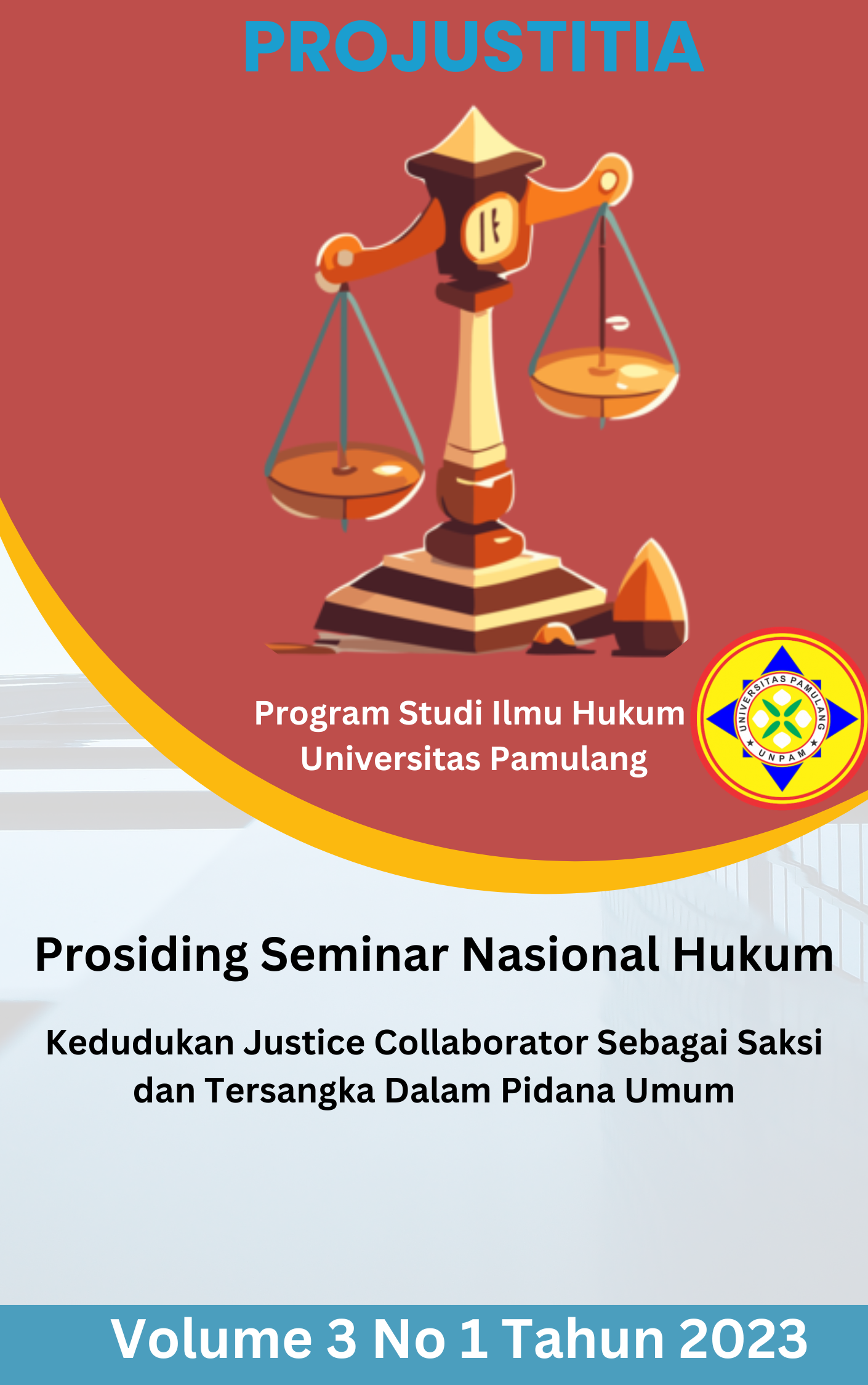KEPASTIAN HUKUM TERHADAP PELAKU ABORSI AKIBAT PELECEHAN SEKSUAL DITINJAU DARI UNDANG – UNDANG REPUBLIK INDONESIA NOMOR 39 TAHUN 2009 TENTANG KESEHATAN
Abstract
Abortion is a complicated problem in the history of human life since ancient times. There really is no other biological function to encourage the emergence of so many human skills than unwanted pregnancies. Abortion is an act of abortion. In Indonesia, this action is prohibited, and is included in Chapter XIX which talks about crimes against life in the Criminal Code. Even though abortion is legally prohibited, in reality abortions are still mostly performed by women for various reasons due to the fact that existing regulations and laws are not accommodating to the reasons that force women to have abortions. In general, abortion can be divided into 2 types, namely:
(1) accidental abortion and intentional abortion. Accidental abortion is an accidental abortion that occurs without any action.
(2) intentional abortion is an abortion that occurs as a result of an act.
Abortion in this second form can be divided into 2 types, namely abortion artialis therapicus and abortion procatus criminalis. Abortion artialis therapicus is an abortion performed by a doctor on the basis of medical indications which is carried out as a rescue for the mother's life which is threatened if the continuity of the pregnancy is maintained. Meanwhile, abortion provocatus criminalis is an abortion that is carried out without a medical indication, for example, an abortion that is carried out to eliminate the results of sexual relations outside of marriage or to end an unwanted marriage. In Indonesia's positive law, the regulation of abortion is contained in two laws, namely the Criminal Code (KUHP) Articles 299, 346, 346, 347, 348 and 349 and regulated in Law no. 36 of 2009 concerning Health Articles 75, 76, 77.
Keywords: Law, Abortion, Health


